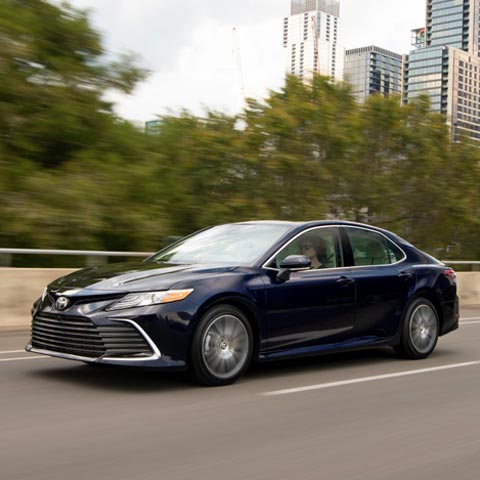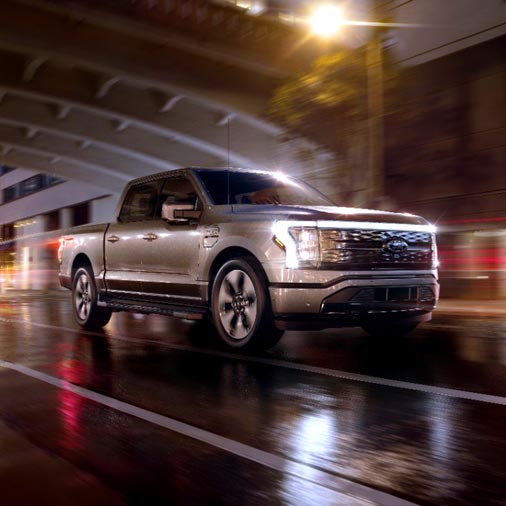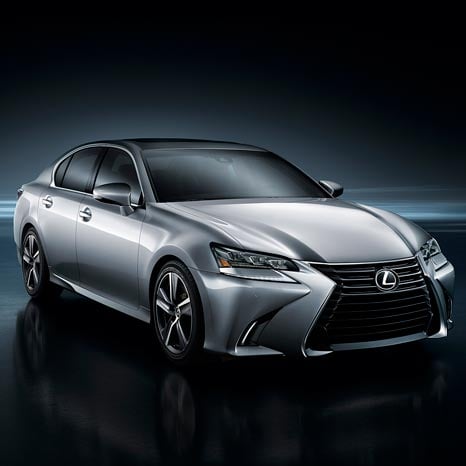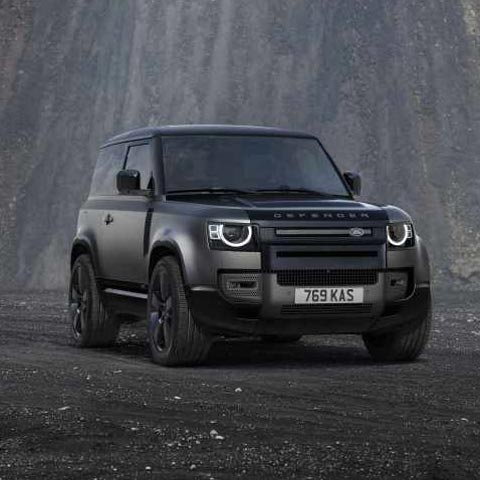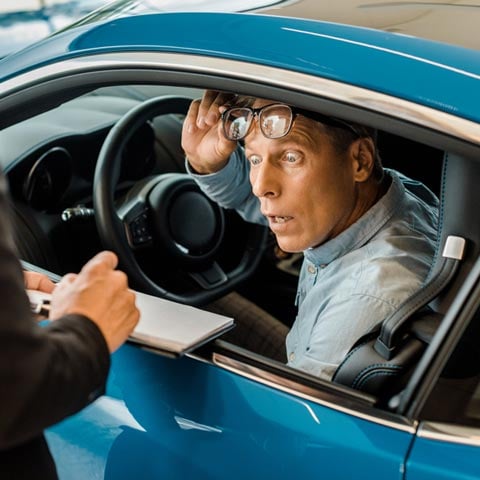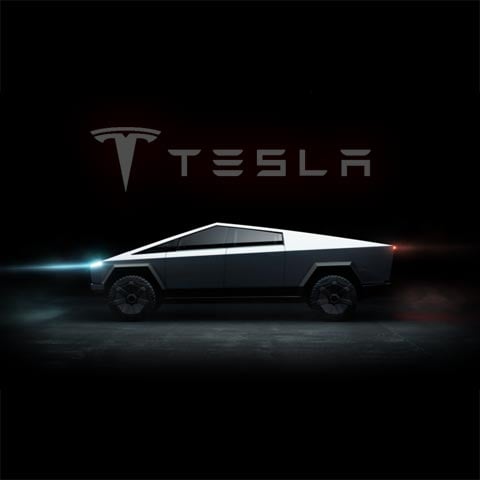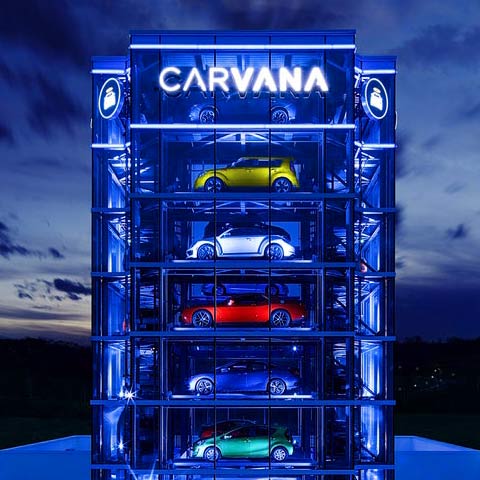Should You Buy a New Car or a Used Car?
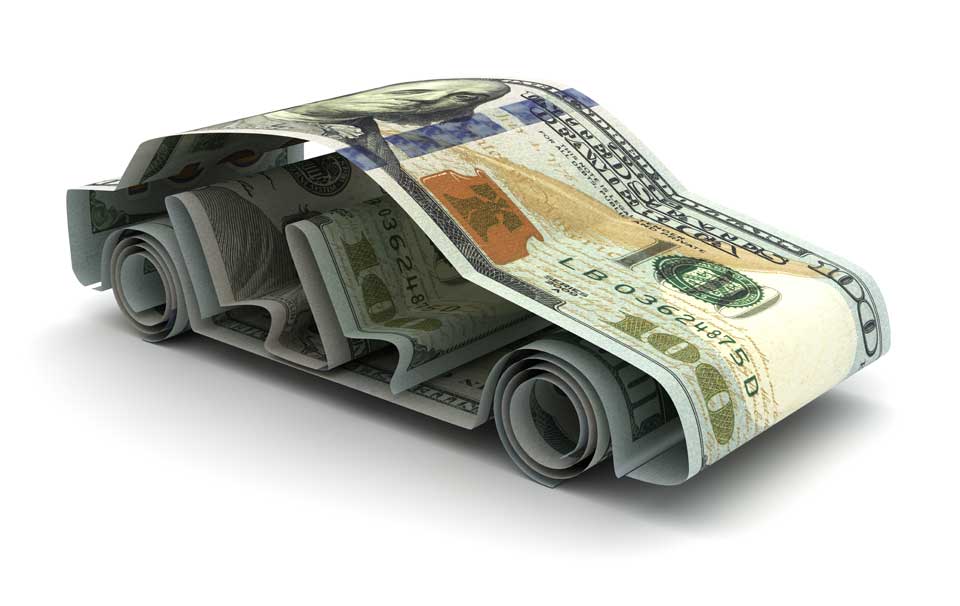
We explore whether it makes more sense to purchase a new car or a used car for your next auto.
Published on July 23rd, 2020. Last Updated on .
Paper or plastic? Caf or decaf? Window or aisle? New car or used car? These are the critical dilemmas facing today's consumers, and the answers to these questions aren't always easy. We explore one of the more profound dilemmas, and that is whether it makes more sense to purchase a new car or a used car for your next auto.
Some Historical Context
With very few exceptions, like a good wine or a pair of hiking shoes, new is almost always better than old. This paradigm has generally held true in the car business too, as new from the dealer has definitely been preferred, relative to someone else's hand-me-down. In the decades of the past, a new car has meant that there was no rust, nothing was bent or broken, the seats weren't ripped or faded, and the tires had a good tread on them. The wheels would be in alignment, the carburetor would have been tuned just right, and the muffler would be quiet and smoke-free too. Having no miles on a new car was definitely a plus too, as not too long ago, problems started to arise on domestic cars and trucks within the first 30,000 miles, if not sooner.
In the days of old, a new car also meant getting the latest engine and transmission, with more speed, more power, and hopefully gas mileage that ran in the double digits. Maybe you got a new ride that would automatically shift on its own (without a clutch), or perhaps you wouldn't have to roll the windows down by hand, or better yet, the antenna would pop out of the hood all by itself when you turned on the radio.
That was then, and these features and drawbacks, generally speaking, aren't the same as that which we are quite as focused on today. Cars and trucks have evolved, and that which were once big problem areas, are no longer, as auto manufacturers, and the vehicles that they produced, are substantially more sophisticated and better built than what your parents drove. With that in mind, let's explore the advantages and disadvantages of purchasing new versus old, and what you should be thinking about as you shop for your next set of wheels.
Why Buy New...
As compared to that described above, the problems of a used car of yesteryear, are not nearly as relevant today as they once were, and as a result, the benefits of a new car in these potentially troublesome areas are diminished, as production quality and reliability are greatly enhanced from years past. The old adage, 'they don't make them like they used to' certainly applies to the car business, and in many respects, we should be thankful. (OK, I know many are going to write me and suggest that the classics are classic, and that new cars are just plastic scooters, but that is a debate for another day.)
Today, the biggest benefits of buying a new car off the lot, are not its lack of rust, or its perfectly functioning carburetor, but instead, the two major advantages of a new car or truck are its safety, and its technology.
Vehicle Safety Becomes Sophisticated
On the safety side, vehicles have come a long, long way since you strapped a seat belt across your lap and the kids jumped around in the back seat. Today's new vehicles are loaded with safety features, as safety is the new frontier in the evolution of new models. Whereas we once were focused on airbags, and anti-lock brakes, newer vehicles have turned the corner and are now offering advanced safety features such as lane-keeping monitoring, blind spot warning, and adaptive cruise control, which will automatically keep you at a specified distance from the car in front of you. Moreover, new vehicles have forward collision warning and automatic braking, as well as a host of various stability and traction controls. These days, in addition to having a passenger in the seat next to you that may yell, "watch out", you have a high tech computer system watching everything around you, and prepared to alert you should anything arise that seems out of line or concerning. It's like having a backseat driver sitting behind you, watching over you, making certain that you and your passengers get to where you're going safely, and without issue.
The speed at which these safety features are coming onboard new models is very quick, and vehicles that are only four or five years old will likely not have the safety technology that today's newer models have. So, if safety is your #1 priority, a new car is often your best bet.
Going Beyond Cup Holders and Subwoofers
As we describe above, vehicle technology related to safety is improving at warp speeds. However, technology is also having a profound effect on how we interact with our vehicles, and the services that your car can provide. Whereas once an in-dash CD changer was considered cutting edge, today's vehicles are literally an information and entertainment center on wheels. Today, you look at the purchase of a new car as you would the purchase of a new smart phone. Perhaps you have an Apple iPhone 6 or 7, and while it has some great features that you use every day, it doesn't have the latest camera or best battery life, or perhaps the screen is smaller than you would like. Does your phone serve its purpose, and do what you need? Yes, but would a new one do it better and faster, and even recognize that it is you just by looking at it?
More likely than not, the current new vehicle shopper isn't necessarily looking for more speed, power or gas mileage, but instead on Bluetooth technology, hands-free calling, Apple CarPlay, and a navigation system that can speak to you in 14 different accents. Today's vehicle shopper wants to upgrade their infotainment system so that it keeps up with their expectations of what their smart phone can do, and wants to make certain that whatever is on your Spotify or ITunes can be played on a 14-speaker stereo as you cruise down the highway. So, it's not worn out bearings, or a tired transmission that compels people to search for a new car, as some models are now good for 300,000 - 400,000 miles and beyond. It's that the newer cars and trucks have more bells and whistles that consumers demand, and are willing to pay for them. Moreover, in an age of Covid and social distancing, our cars have become our mobile resource, where our SUVs are now portable, self-contained communication centers and supply vehicles. Can you get by with an older model? Of course, but if you have the financial flexibility for the 'new and improved', go for it.
Why Buy Used...
As described above, there are many good reasons to purchase a new vehicle; you get the latest safety features, as well as all the cool gadgets that make driving more enjoyable, and potentially more productive. However, there is one standalone reason that makes a used vehicle a very attractive alternative, and that can be summed up in one word-MONEY. Getting a bright, shiny new car with 0 on the odometer is great, but at what price? Here is where we turn a little more analytical on you, so that you can weigh which may be the better option for you.
The Almighty Dollar
New cars lose value, or depreciate, rapidly. Once you drive your new car off of the dealer lot, you have lost thousands of dollars by the time you pull into your driveway or parking garage for the first time. We have researched and analyzed the depreciation rates of hundreds of car and truck models over the years, and we have some very concrete data to support our findings. Our research tells us that the average new car will depreciate 23% in the first year of ownership, and another 9% and 8% in the second and third years respectively. This means that your new car has lost 40% of its value in just the first three years of your ownership-and that's a pretty lousy return on your investment.
The Numbers are Compelling
If we were to translate that above into some real numbers, the results are pretty compelling. Take for instance, an average new car purchase of $40,000 (which is about US average). After one year's use, your $40,000 vehicle investment is now worth $30,800, or coming close to a $10,000 loss. At the ends of years 2 and 3, your vehicle's value is now $27,200 and $24,000 respectively. So, by the end of year 3, you have lost $16,000 on your $40,000 investment-and, that's no bargain. Importantly, this is making the bold assumption that you sell your call yourself, and don't trade it in to a dealer. If you trade your car in for a new one, you'll receive even less than the numbers above, so be prepared for even more financial pain.
Not All Used Cars are Created Equally
The example above is using industry average figures, and it very much reflects the results of 99.9% of new car purchases. (The other .1% is for the limited edition exotic model, or the highly-demanded 2018 Ford Raptor, that may go up in value if purchased at MSRP, but don't count on it, as it's a rare occasion.) However, within the industry, not all brands and models depreciate at the same rate, as there are good (not great) performers, and there are poor performers. We have evaluated the depreciation rates of close to 200 models with at least 5-year track records, and have found that there is wide disparity of the results. On the better end, the Toyota Corolla Hybrid maintains 75% of its value after three years, and ranks right up with the best of them. On the other extreme, the Ford Fusion Energi is worth about 45% of what an average owner paid after three years of use-and that is being optimistic. Click here to visit our rankings.
Maybe You Can Get the Benefits of Both...
Thankfully, in today car market, you don't necessarily have to sacrifice safety to save money. We recommend that you consider purchasing a vehicle that is 'slightly' used and where much of the depreciation on the vehicle has already occurred. Remember, for every new vehicle that loses 40% of their value in the first three years, there is that same vehicle that is now selling for 40% less than it did three years ago-and there may be a good deal there.
On that note, whereas new vehicles depreciate hard and fast once driven off the lot, this changes significantly once a vehicle becomes a few years old, where the rate of depreciation slows-a lot. Whereas the average new vehicle loses $16,000 of its value in the first three years, it will likely lose only $8,000 in the next three years. As a result, your 'cost of ownership' from a depreciation standpoint is half that of a new car, and gives you an extra $8,000 to spend on other things.
Consider a CPO (no, not the droid)
At CarEdge.com, we recommend looking at Certified Pre-Owned or CPO cars. These vehicles, which were historically only available on high-end brands such as Lexus and Mercedes, are now common across many vehicle lines. In short, a CPO vehicle is a used car or truck that has been inspected and refurbished by the manufacturer's dealer, and is certified as being in 'like new' condition. These vehicles undergo a thorough inspection to ensure that everything is as it should be, including replacing any wear items such as brake pads or tires whose tread is running thin. In addition to getting a vehicle that has been inspected and is being represented as problem-free, you generally get a new, extended warranty that will usually be good for a least a couple years, if not more. In our opinion, CPO cars and trucks have the ability to offer you a vehicle that will look and feel like new, but it won't have the 'new car' price.
It's All About Your Priorities
As with anything in life, it's all about trade-offs, and your priorities in life. If you feel like you want the hottest model off the lot, or the latest in terms of safety, technology or just cool gadgets, well then, a new car may be appropriate for you. If, on the other hand, money is more important to you, and you don't want to see it fly out the window as you leave the dealership, a used, or slightly used vehicle, like a CPO, may be a better fit for you. We show you how 200 vehicles have depreciated over the years, and with that, you can get a pretty good sense of what your car's value will become in the years ahead.


